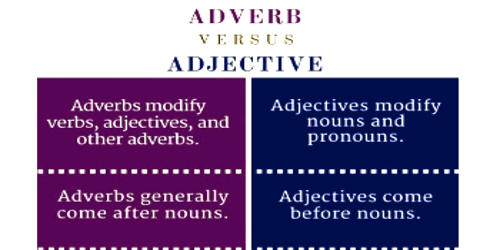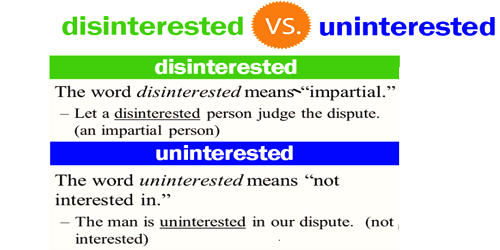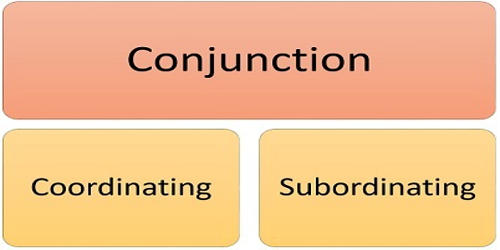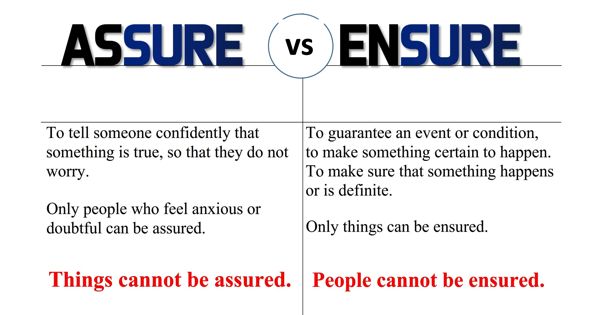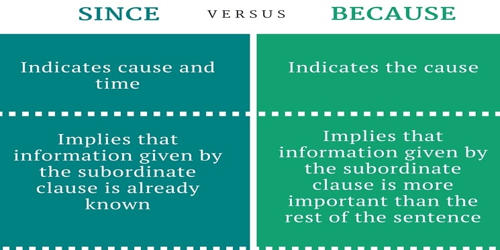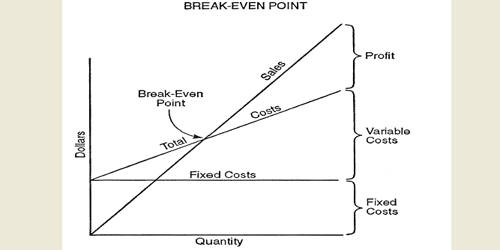An adjective is a word or set of words that modifies (i.e., describes) a noun or pronoun. Adjectives may come before the word they modify. There are eight parts of speech. Of which, adjectives and adverbs are most commonly juxtaposed, as they describe more about another part of speech. There is a lot of difference between an adjective and adverb on the basis of their usage and types. An adjective describes a noun or pronoun: “That boy is so loud!” An adverb describes a verb or anything apart from a noun and pronoun: “That boy speaks so loudly!”
While adjectives are primarily used to provide additional information about a noun or a pronoun, i.e. people, places, animals, and things. On the other hand, adverbs are used to give you extra detail about a verb, adjective or adverb. While an adjective qualifies a noun or pronoun, the adverb is used to modify the verb, clause, phrase, adjective, preposition, and conjunction.
Difference between Adjective and Adverb
ADJECTIVE
- An adjective is a word, which adds to the meaning of the noun or pronoun it precedes or succeeds. It describes (or modifies) the noun or pronoun.
- In grammar, the adjective is among the eight parts of speech which identifies and describes a noun or a pronoun, i.e. person, place, animal, or thing.
- An adjective is a term that we use in our sentence to expound the meaning of a noun or a pronoun, i.e. it acts as a modifier of a noun, so as to indicate the quality of the thing mentioned, express its quantity, extent, or to highlight something which is rare in nature. Put simply, adjectives confines the meaning of a noun or a pronoun.
- Generally, an adjective is positioned before a noun or a pronoun it describes. However, it may also appear after the words they identify or describe.
- Adjective provides answers to questions such as which, how many, what kind, etc.
- Examples: She is a sweet girl. This house is very big.
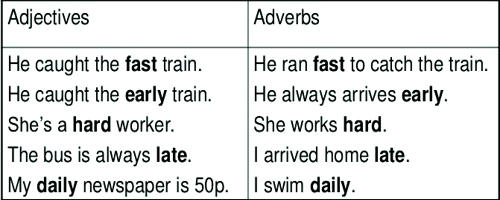
Fig: Example Differences between Adjective and Adverb
ADVERB
- An adverb is a word, which changes or describes a verb, adjective, or another adverb, which it precedes or succeeds. It describes (or modify) adjective, verb, or other adverbs.
- In grammar, an adverb is also one of the parts of speech, which gives you further information about a verb, adjective, or any other adverb.
- An adverb is one of the eight parts of speech which gives a description of a verb, adjective, clause, or adverb or provides additional information about it. It acts as an intensifier, in the sense that it gives emphasis to the verb, adjective, clause, phrase, or adverb. Generally, it talks about the time, place, degree, frequency, manner, of anything.
- You can easily identify the adverb in a sentence, by checking the suffix, i.e. an adverb ends in -ly. However, there are some adverbs which do not end with -ly such as fast, hard, early, late, and so forth. These are placed either before a verb or after it.
- Adverbs will answer questions like how, when, where, how much, how often, to what extent, etc.
- Examples: She talks very sweetly. You need to invest your money wisely.
